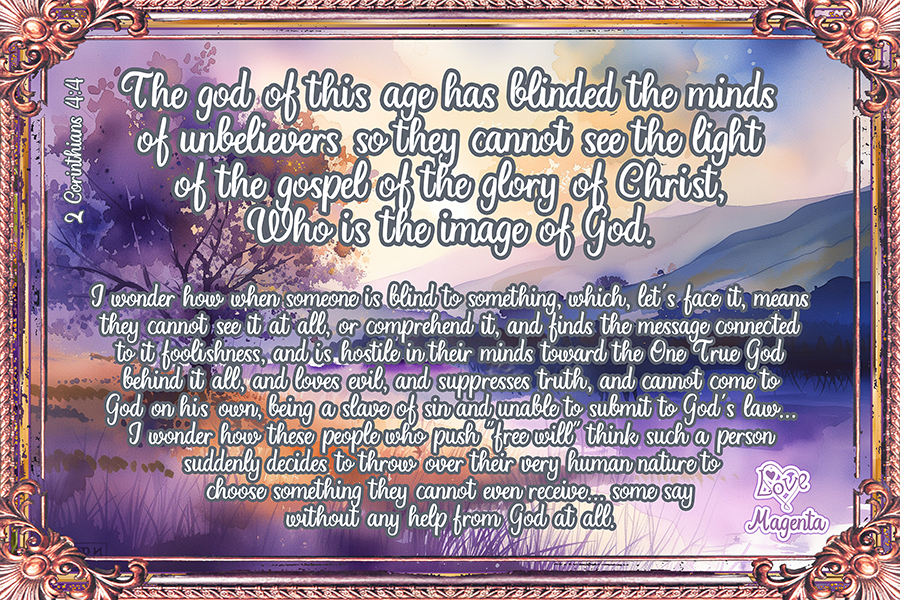there is one more key factor, TRUTH!.
Yes, and helping any open-minded atheists to learn the truth about God may require explaining how creation reveals God's power and loving nature. I began the Bible-based logical train of thought in this thread by citing three unavoidable beliefs and then two qualitatively opposite answers to the question regarding the meaning of life. Next I posited that sane or non-nihilistic people choose to believe that life has meaning or a moral dimension, and I noted four flavors regarding what warrants such faith, beginning with humanism. Then I shared an analysis of major religions including karmaism, naturalism and atheism. Now I will continue by citing evidence supporting faith in God.
Atheists claim there is no more evidence for the existence of God, the Creator and Judge of humanity, than for the reality of obviously fictional entities, such as Odin or unicorns. However,
four types of evidence or reasoning may be viewed as supporting rational belief in God, although they do not prove He exists: the unique universe, theocentric human history, existential need and moral conscience.
Current scientific theory states that the universe began with a “bang”, when a marble of matter or a singularity of energy suddenly exploded, and that it will end with a “whimper” when the stars eventually fade to darkness. This unique universe theory is compatible or consistent with belief in a God who created the universe “ex nihilo”, who sustains it by His power, and who will judge its moral agents at the end of time.
Current knowledge of
world history suggests that humanity descended from one genetic source and evolved into various cultures. Throughout history humanity has perceived deity to be the ground of meaning and morality. Theocentric history reached its apex or spiritual climax with the NT teaching that there is one almighty and all-loving God, who desires all humanity to live in harmony on earth and also in heaven, and who allows humanity to experience earthly existence including pain and disappointment (KOTH) for the purpose of teaching them their need for Him (cf. HB 12:10).
Current
existential reality indicates that mortals need God in order to obtain immortality, that morality needs God for a universal imperative and ultimate justice, and that the NT offers the best hope that this “duo of desirables” (DOD) or heaven and justice/hell can be attained. Just as physical needs are satisfied by material realities, perhaps our metaphysical needs indicate the reality of supernatural solutions (the God of the DOD).
Moral conscience indicates and logically requires accountability to a moral authority, and the supreme Authority would be God. Paul wrote (in RM 1:32 & 2:15) that people “know God’s decree that those who do evil deserve death” and that their consciences “show that the requirements of the [God’s moral] law are written on their hearts.” Our feeble attempts at earthly justice may reflect or serve as evidence of God’s perfect justice. This view is similar to Platonic idealism (cf. 1CR 13:12, HB 8:5, 9:23 & 10:1). We may perceive perfect justice partially (1CR 13:9-12) using spiritual eyes/intuition/a sixth sense along with inference, logic, and even imagination. [Slashes indicate equivalent terms.]
Y'all's commentary?...

1



